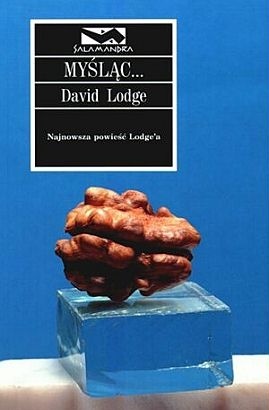What do you think?
Rate this book


342 pages
First published January 1, 2001
This was a good book to read whilst feeling under the weather because I know I'll never catch all the subtexts and references even if I read it when I was running on full power. David Lodge always gives me a feeling that I'm missing half of what's going on, but it doesn't really matter because he still delivers a very readable story full of laughs, wit and tragedies.
This is another tale of English University life - he's written several before - this one is set at the (fictional) University of Gloucester, a campus university bearing major resemblance to every campus uni I've ever visited. I read his earlier books quite a few years back and only spotted one reappearing character in this one, Robyn Penrose, and she only has a walk on part here. This struck me as a sadder tale than his earlier books. Like them it deals with marriages and adultery and the effects of affairs on those around but I felt there was less comedy in this one. It might just be that I'm not in a very comedic mood today. There's plenty of wit but less silliness, and on the whole I found that good. The characters in this book seemed less stereotyped and more realistic than in earlier books (which is perhaps a dumb thing to say since many of the characters in earlier books were pretty much intended to be stereotypes) and this seemed more like a real story and less of a social observation.
I also enjoyed the fact that we didn't get mired in a slurry of English faculty and one of the main characters was a computer scientist (albeit a cognitive scientist really) and there were plenty of logical puzzlers to entertain me when the literary aspects went flying over my head.
All in all, just as enjoyable as I'd hoped and rather more engaging on many levels than I'd expected.
Égal à lui-même, l'auteur nous livre une subtile confrontation de points de vue et la rencontre explosive de deux jardins secrets. Il détourne les recherches actuelles sur le cerveau par un duel intellectuel et un duo charnel savoureux. De la conscience phénomène chimique à la conscience territoire de l'art, les deux personnages se rejoignent au final sur la bizarrerie de l'instinct sexuel qu'il ne s'agit plus d'étudier… mais de consommer. Rien ne résiste à l'humour de Lodge, ni la tradition du journal intime ni quelques plumes britanniques pastichées au passage. Ses "accros" y trouveront leurs repères habituels : ironie plaisante et sarcasmes cultivés sont en effet de mise. --Claire Pardieu